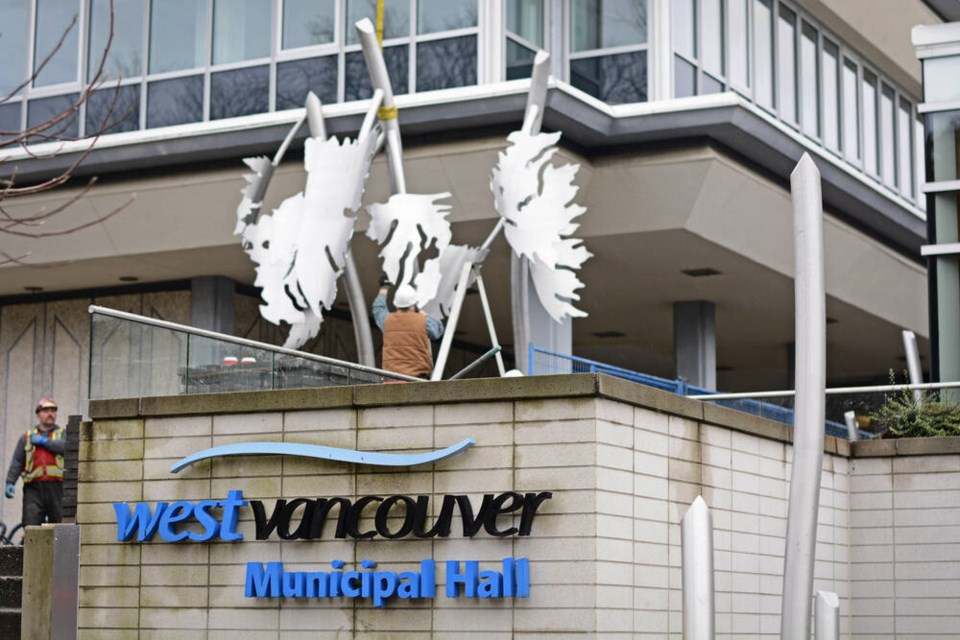The District of West Vancouver last week denied my request under the province’s Freedom of Information and Protection of Privacy Act for the financial details of the severance payments in recent months for the two former top public servants.
I didn’t take the rejection personally, any more than the mayor and council should take the request personally. I’ve used this provincial law and the federal version thousands of times over nearly four decades to try to extract information from governments that they choose not to routinely disclose.
The law is embarrassingly weak and stacked on the government side with hundreds of exempted categories of public records. There are obvious reasons why politicians don’t choose to strengthen it. Mainly, self-welfare prevails.
In this instance, there are admittedly strong arguments on both sides of the issue that require a balancing act of public and personal interests. No wonder the title of the provincial legislation includes the contrasts of information freedom and privacy protection.
And with this request, they’re quite the contrasts.
The argument for transparency first comes to mind. Let’s never forget it’s taxpayers’ money, and as a first principle, taxpayers ought to know how every dollar is spent. With insufficient clarity and accountability for funds, trust erodes. Unless someone blows the whistle, we will never learn if severances were wrongful or excessive.
In this case, the municipality can dismiss anyone it chooses, then include in a severance a standard non-disclosure/non-disparagement agreement. We never find out why the employees were let go. They are legally bound not to speak, and the officials who decided it was time for the public servants to depart never have to explain themselves or what they authorized to settle up.
There is no way even to examine the city budget to understand the aggregate amounts of severance, because the sums end up in larger budget categories. Without access to information, speculation and rumours will abound: Did the district pay $100,000? $250,000? $500,000?
At least in this case, I learned that indeed there were severance agreements. To this point, the mayor hadn’t acknowledged so.
“Severance amounts are subject to settlement privilege and have been withheld” from disclosure, the district’s manager of records and privacy, David Neufeld, wrote me. I will appeal the decision to the provincial Office of the Information and Privacy Commissioner, but there are ample precedents to keep the amounts secret, and the district of course knew that in handling the cases of former CAO Robert Bartlett and former deputy CAO Mark Chan. Its deliberations on these were in private and thus privileged.
Tidy, but hardly clean.
If the district did not divulge what it settled with them for severance, it was at least willing to reveal their recent compensation: $288,609.01 for Bartlett and $251,376.47 for Chan in 2022 and, “excluding agreed-upon settlements,” $165,112.70 for Bartlett and $48,075.44 for Chan in 2023. That suggests Chan left the payroll much earlier than Bartlett – pro-rated, it looks like March and July, respectively.
When I first wrote about these issues earlier this year, a few readers wrote to criticize the salaries of top administrators and to say good riddance. They argued that the last election gave a mandate to clean house and save money on excessive salaries.
I followed the campaign pretty carefully and can’t recall that as a Top 5 issue. Mainly what I took away was that the new slate of mayor and council were going to run the government as they would run a business. Which is rather like saying I’d like my cough medicine to be a chocolate bar. I’d be interested to know if those readers who said they voted in order for the district to save money care how much money has been spent in that pursuit of frugality.
I concede that there are plenty of examples of overpaid public servants – even, I dare say, underworked ones – but when I’ve inquired over the years, I almost always discover that in general their salaries are subjected to strong compensation reviews to ensure they’re competitive but not over the top.
But when you’re administering $140 million, you don’t want unskilled people holding the big jobs. Nor should you be focused on salary dumps, because in business as in government, you generally get what you pay for.
Kirk LaPointe is publisher and executive editor of Business in Vancouver as well as vice-president, editorial, Glacier Media Group, the North Shore News’ parent company. He is also a West Vancouverite.



